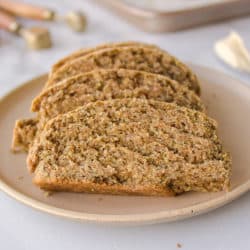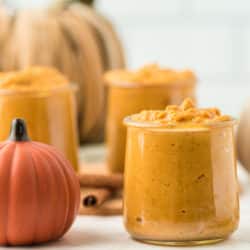7 Holistic Lifestyle Tips for Beginners
What is a holistic lifestyle and how can you use it to improve your healthy and outlook on life? Learn how feel better with these 7 holistic lifestyle tips for beginners.

What is Holistic Health?
Holistic health is the practice of comprehensive healthcare.
With holistic healthcare, the entire individual is considered, including mental, emotional, and physical well-being. Holistic health can be considered more of a lifestyle rather than a treatment for one symptom or issue.
The term “holistic” has actually only been in practice very recently in our history, since the 1970s. Holistic health emerged from the term “holism,” or interconnected parts of a whole.
The practice of holistic health was initially formed from Hippocratic medicine (also considered the birth of Western medicine). Hippocratic medicine was the first practice to consider the physical root of ailments, in addition to metaphysical roots.

In the 20th century, with the emergence of the germ theory, holistic medicine became increasingly separated from our current symptom-focused medicine. Thus, the terms holistic, alternative, or natural medicine began to oppose conventional or Western medicine.
Holistic health can be viewed as the umbrella term encompassing more specific practices of alternative medicine and complementary medicine. At its root, holistic health aims to encourage individuals to embrace all aspects of their life in a wellness journey.
Holistic health is, in part, preventive medicine, though it can also help address specific, existing health conditions.
Many people find relief from anxiety, fatigue, emotional imbalances, and more when practicing holistic health.
Holistic health may also help you manage your weight, relationship with food and exercise, and common diseases like metabolic syndrome, diabetes, and heart disease.
7 Holistic Lifestyle Tips for Beginners
If you’re interested in creating more of a holistic lifestyle for yourself, here are some beginner tips to get started.
As always, please check with your healthcare provider before making any changes to your diet or lifestyle.

1. Learn to eat and enjoy real foods
Nutrition is a key component of holistic health.
The foods we eat have a direct impact on our health. There are several different paradigms in the holistic health space, but it is agreed upon that nutrient density and adequate food intake are important. Try and have at least 80% of your diet be real, whole foods from the earth.
Spend a fun afternoon researching recipes or meal plans that use real foods (here’s my round-up of the best clean eating websites). Try new vegetables every time you grocery shop, and make traditional comfort foods out of real, nutrient-dense ingredients.
See which foods I recommend eating every day for a clean, balanced diet. you might also want to read my articles in the category of clean eating basics including how to eat clean and my healthy grocery shopping list.

2. Create a symptom journal
One important aspect of holistic health and creating a holistic lifestyle is to be in tune with your body. How are you feeling? What connections can you make in terms of your activities and any symptoms you are experiencing?
Check in with yourself throughout the day and at the end of the day and to document your activities and how they impact how you feel. to see how you feel physically, mentally, and emotionally. A symptom journal is a great way to do this.
A symptom journal doesn’t have to be as long as a regular journal (although it can be), but the idea is to help match up which foods or activities impact how you feel.
Do more of what makes you feel energetic and happy, and less of what makes you feel less energetic or less joyful.
Your symptom journal can also come in very handy if you end up visiting with a holistic health practitioner who might want to review what you have been eating or doing that may be impacting your health.

3. Take care of yourself as if you are taking care of a child
This may sound silly, but this practice of taking care of yourself as if you were a child can really help you learn to rest when you need to rest and eat when you are hungry, and so on.
Children innately know their limits and what their bodies need, and we are trained out of following this wisdom as we enter society.
Some of us were never taught by our parents to treat ourselves with patience, kindness, and grace. The good news is that you can learn to re-parent yourself. This may require the assistance of a qualified therapist, but the work is so, so important, and can be transformative.
Treating yourself gently and with care, as you would a child, will help you recover your body’s wisdom and develop a dedication to your own well-being. For instance, eat when you are hungry, rest when you are tried, play when you are bored, and so on.
You won’t believe how much better you can feel when you start taking really good care of yourself. This is a major tenant of a holistic lifestyle and is well worth the effort.

4. Take it one day at a time
Every day is a new opportunity and a choice.
If you slip up on your sleep habits or choose to do something not in your best interest, give yourself some grace. You are human and you are still learning!
This simple mantra is another basic practice of a holistic lifestyle.
We can’t expect every day to be the same or to be perfect. Learning to accept things as they are and starting each day with a positive mindset can be transformative for your overall health.

5. Recognize your ability to heal so you don’t feel stuck in illness
Your body wants to heal and to feel good. Many of us who are practicing a holistic lifestyle may be dealing with a chronic illness or serious symptoms.
Start by removing limiting phrases from your vocabulary. Stop identifying with illness or your diagnosis; rather than saying you have a disease, say you are a person who experiences the symptoms of a disease.
Recognize that all symptoms are individual, often temporary experiences and that you have the power to try and heal from.
If you are dealing with a terminal disease or something life-threatening, you may require the help of a therapist. The important part is that you get help when you need it.

6. Remove toxic people and substances from your life
Remember, you are in charge of your life and your well-being.
If you are new to a holistic lifestyle, you must learn to establish boundaries around your well-being. Negativity from others can be very toxic.
If a person, experience, or substance does not make you feel good and or actively harms your well-being, take steps to remove that from your life. This is part of being responsible for yourself and your health.
7. Start to find joy in your life
Multiple different studies have indicated that positive emotions like happiness and joy help your health. Try starting a “joy journal,” jotting down experiences that bring you joy.
After identifying what makes you truly happy, begin making a plan to bring more of these experiences into your life.
Focus on the positive and allow negative experiences to just be temporary.

FAQs About Holistic Health
Holistic health aims to address the body, mind and spirit, where functional health aims to identify the root causes of symptoms. They are two different approaches but can also be practiced at the same time and can have a lot of overlap.
Absolutely not! A holistic lifestyle is meant to be practiced by everyone. It is designed to help prevent and address certain health issues. A holistic lifestyle is also meant to be a general blueprint for a good and balanced way to live your life.
No, there is not one diet that is designed for a holistic lifestyle. Ideally, you would follow a version of a clean eating diet that is adapted for your specific needs.
No! You do not have to practice one religion or even believe in religion to practice holistic health. You may be asked to contemplate your spiritual side as part of a holistic lifestyle, though. But, you don’t have to subscribe to any one religion or belief system.
More Healthy Resources You Might Like
Conclusions
Holistic health is a broad idea of viewing yourself as a complex being that needs nurturing and care both inside and out. By practicing some basic holistic health techniques, you can feel better and start to improve your overall well-being.
And, if you’re looking to switch to a functional medicine practitioner, then check out my article on how to find functional medicine doctors near me.
Don’t forget to join my newsletter list to get exclusive clean eating recipes and tips. The newsletter is 100% free with no spam; unsubscribe anytime.
About the Author: Carrie Forrest has a master’s degree in public health with a specialty in nutrition and is studying to be a holistic nutritionist. She is a top wellness and food blogger with over 5 million annual visitors to her site. Carrie has an incredible story of recovery from chronic illness and is passionate about helping other women transform their health. Send her a message through her contact form.
Note: this post is for informational purposes only and is not intended as medical advice. Please consult your healthcare provider for recommendations related to your individual situation.






















Thank you for the information and the additional information included in the article. I’ve been learning a lot from you over the past few weeks!
Oh that makes me so happy to hear! 🙂
Integrating Eastern and Western medical philosophies in restoring the body back to its balance giving the body its correct ingredients for its restoration so that people feel better naturally. This is the best way to do a holistic approach medicine.
Great, thank you for your input!